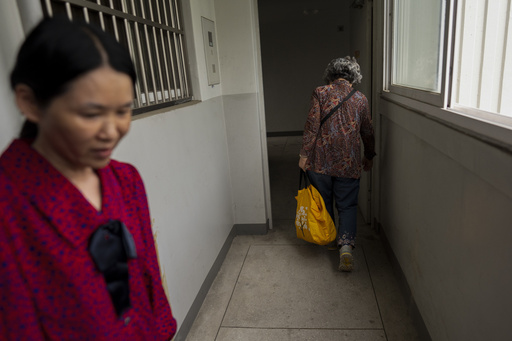Yooree Kim entered a police station in Paris to report a crime from four decades ago. She recounted being kidnapped as a schoolgirl from South Korea in 1984 and sent to France. Kim believes the French government, along with other Western nations, allowed families to adopt children internationally without proper safeguards, leading to fraudulent adoptions, fabricated identities, and children being sent to new parents overseas. Through investigations and conversations with over 80 adoptees and examining numerous documents, it was revealed that issues with international adoptions, particularly from South Korea, were widespread and overlooked by Western governments aiming to fulfill the demands of families seeking to adopt children.
Kim’s story sheds light on the challenges faced by many Korean adoptees whose adoption paperwork was inaccurate, leading to questions about their origins and identities. Countries such as the Netherlands, Denmark, Sweden, Norway, and Switzerland are now grappling with their past roles in these practices, with some issuing apologies and halting international adoptions. The United States, a pioneer in international adoptions, is also facing scrutiny over its accountability in the flawed adoption processes.
The U.S. government, initiated by questions raised by The Associated Press, is beginning to investigate its past involvement in international adoptions, particularly from South Korea. The inquiry is shedding light on the lack of oversight and safeguards in the adoption system, with instances of fraudulent practices and questionable adoptions being uncovered. The focus is now on understanding and acknowledging the past mistakes to ensure a more regulated and ethical adoption process in the future.
The narrative around international adoptions is evolving, prompting discussions on the need for more stringent regulations to prevent illegal adoptions and ensure the well-being of children. While organizations like Holt International have called for stricter safeguards in the adoption industry, they also acknowledge the challenges of balancing regulations with the urgent need to provide homes for vulnerable children worldwide. The complex history of international adoptions, especially from South Korea, is prompting a reevaluation of the adoption industry and a call for greater transparency and accountability moving forward.
Individual stories like that of Yooree Kim highlight the long-lasting impacts of flawed adoption practices, with adoptees seeking answers and accountability for their past. As countries confront their roles in these practices, there is a growing push for a more thorough investigation and understanding of the international adoption system’s history to prevent such issues from recurring. The focus is on learning from past mistakes and working towards a more ethical and regulated adoption process for the future.
